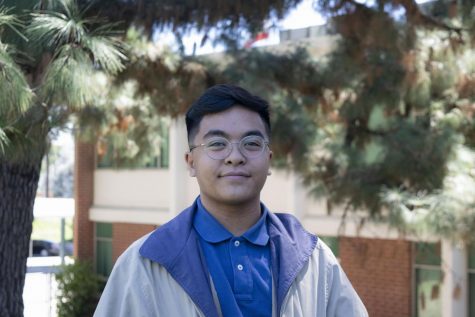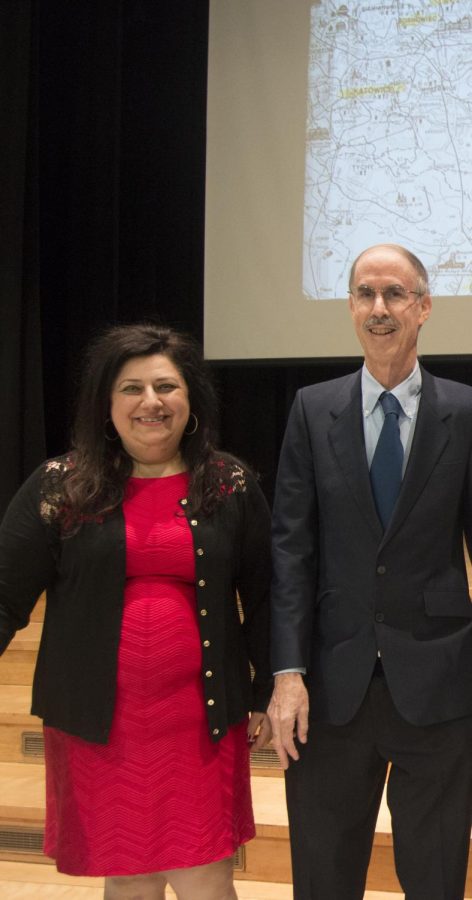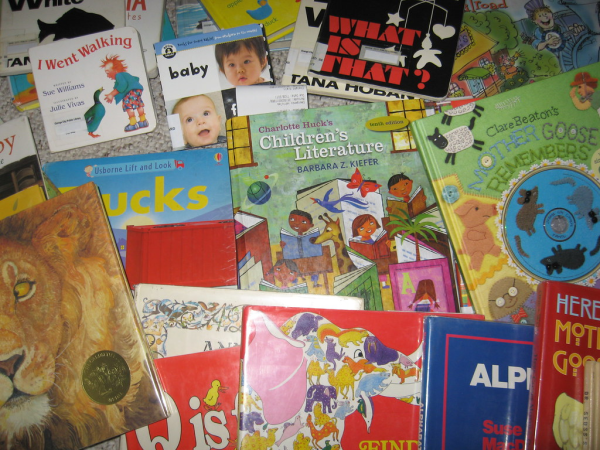Holocaust witnesses inspire students to speak up
Ms. Kortoshian and Mr. Meyerhof
On a day globally accepted as the day to celebrate love, David Meyerhof — son and grandson of Holocaust survivors — and Phil Raucher — a survivor of the Holocaust — visited Clark Magnet on Valentine’s Day to encourage people to stand up against hate.
“It was really interesting having Holocaust survivors come to Clark,” said junior Tony Choi. “GUSD allowed a new perspective by allowing and paying to have speakers like them provided to students.”
In the first presentation of the day, Phil Raucher discussed his life in Czeladz, Poland, a small town bordering Germany and Poland. After the German invasion, Raucher was captured and placed in an internment camp. Raucher discussed his life in the concentration camp and its inhumane conditions. His escape followed the Russian invasion of Germany and was taken by the Russians because they thought he was a spy.
“Mr. Raucher’s first person perspective provided me with insight that I only saw in novels,” Choi said. “I never really expected to meet a real-life Holocaust survivor outside the Holocaust museum, but I’m grateful that I now have.”
Meyerhof, who presented during sixth period, didn’t describe his father and grandfather as survivors of the Holocaust, but rather as witnesses — witnesses to the horrible, inhumane genocide that was the Holocaust, and witnesses that could enforce change in the world to never allow another such act of hatred to happen again.
Meyerhof’s main purpose in delivering a speech to a hundred of Clark’s sophomores, juniors and seniors was to encourage standing up against any act of hate; whether through physical or verbal bullying, Meyerhof encouraged witnesses to stand up for victims of hate speech or hate crime.
GUSD paid to have Meyerhof and Raucher present at each of their high schools. Teacher Eric Kursinski helped facilitate and organize their presentations and said he connected especially well with Meyerhof’s presentation.
“[Meyerhof’s encouragement to stand up against hate] was a very nice way to end the presentations,” Kursinski said. “Especially in high school, when bullying and teasing is so rampant and on the forefront of people’s mind, being more aware of teasing and bullying was a really good way to end on that.”
“It wasn’t just about the Holocaust; it was about ‘what can you take away with this to make the world a better place?’ His message was ‘if you see something, say something,’” Kursinski said.
Meyerhof’s presentation was also impactful on an individual level. Though he spoke to a crowd of over 100 high school students, Meyerhof gave reason to speak up to those who are afraid to.
“[The presentation] could have heightened a student’s sense of self or of the bullying issues that we have on campus, if there are certain ones that pertain to certain students,” Kursinski said. “I also initially thought that on a day like Valentine’s Day, when it’s a day about celebrating love and connections with people, it wasn’t a good day to have this discussion on. Since the message was essentially ‘love everybody,’ I thought it was actually really appropriate because it would go well with students who were feeling lonely on Valentine’s Day and might’ve actually helped them. It really affected the students who were engaged and listening in a positive way.”

Hobbies: Playing and watching basketball, listening to hip hop, taking pictures
Favorite shows: The Office, Parks and Rec, Daredevil
Places...










